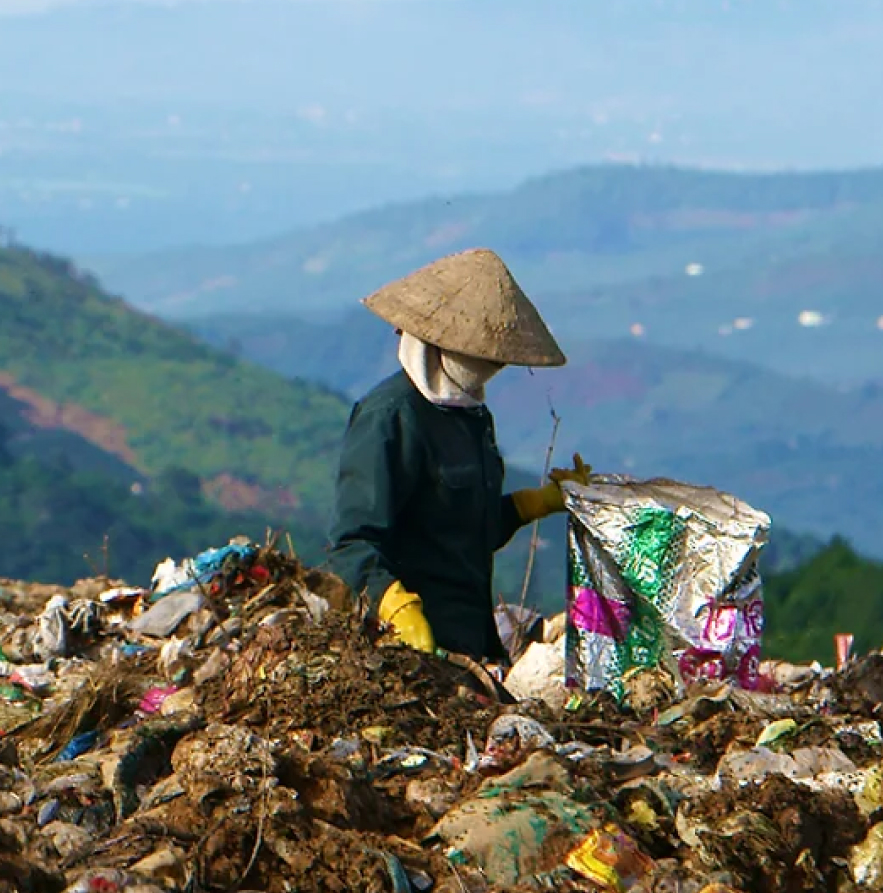Harmonized Responsible Sourcing Framework for Recycled Plastics


Overview
The Harmonized Responsible Sourcing Framework for Recycled Plastics (“the Harmonized Framework”) is the first global effort to establish a harmonized and actionable framework to implement responsible sourcing practices for all actors in the recycled plastics value chain.
The Harmonized Framework is designed to create a practical approach to improve responsible sourcing practices that can be adopted by all stakeholders. It is informed by the perspectives of informal waste sector workers and waste pickers and developed to focus on their needs.
We are sharing the first set of tools and resources to support the implementation of the Harmonized Framework and improve responsible sourcing practices.
Highlights

Contributions by over 40 organizations, including waste picker organizations, global corporations, investors, recycling companies, and civil society organizations

Draws from existing human rights and responsible sourcing frameworks, including the Fair Circularity Principles, the UN Guiding Principles on Business and Human Rights, and NextWave Plastics’ Framework for Socially Responsible Ocean-Bound Plastic Supply Chains

Aims to protect the rights and livelihoods of informal waste sector workers and waste pickers in the value chain, dispel ambiguity of what responsible sourcing means to different actors, and reduce administrative and regulatory burden for businesses in the plastics value chain
Key Thematic Areas
The Harmonized Framework aligns definitions, key thematic areas and indicators to drive local solutions and track progress across five key thematic areas:
Who is the Harmonized Framework for?
The Harmonized Framework is designed for all stakeholders across the recycling value chain, and provides flexibility for each actor to prioritize relevant themes and indicators and adapt the tools to their requirements based on value chain conditions, baseline assessment status, and/or availability of resources.
The Harmonized Framework aims to:
- Protect their rights and livelihood
- Acknowledge their crucial contribution to plastic recycling
- Recognize their status as a marginalized group in the value chain
The Harmonized Framework helps meet the increasing demands of regulatory requirements such as Extended Producer Responsibility (EPR) and EU regulations, ensuring consistency and reducing administrative burdens.
Adopting responsible sourcing practices enhances brand reputation and meets consumer and investor expectations for sustainable and ethical operations.
Enhanced transparency and traceability will optimize supply chains, ensuring a steady supply of responsibly sourced plastics while safeguarding human rights.
When value chains become more transparent, robust and responsible, through compliance with national and international regulations, more investments will be unlocked towards recycling value chains.

Testimonials
“By promoting greater transparency, inclusion and more equitable livelihoods, we aim to advance the human rights of informal waste pickers and to improve responsible sourcing practices. With funding support from The Coca-Cola Foundation, The Circulate Initiative and additional grantee partners have worked to integrate the harmonized responsible sourcing framework into their programs, helping amplify its positive impact. The framework’s success hinges on the collective efforts of companies and stakeholders, and we believe it has the potential to become a globally recognized framework for developing and maintaining more responsible recycling supply chains.”
Jeff Denby
Senior Director,
The Coca- Cola Foundation
“The Harmonized Framework makes an enormous contribution towards improving the lives of workers in recycled plastics value chains by supporting actors at all levels to implement responsible sourcing practices. Reaching consensus on the key challenges faced by informal waste workers, and the steps that are needed to address them, enables companies, aggregators, and recyclers to move quickly to action. It is vital that all companies in the value chain align their responsible sourcing goals with the priorities set out in the Framework, to ensure the critical mass of effort and engagement necessary for systemic change.”
Jenny Holdcroft
Director,
Shift
“One of Mr. Green Africa’s founding principles is a commitment to the equitable, fair treatment and payment of informal waste collectors. As a company, we’ve already achieved B Corp accreditation thanks in large part to our commitment to these principles, but the Responsible Sourcing Framework is a significant step forward in embedding this approach further, by giving all of us operating in the sector a shared set of targets and metrics to work towards. This common language will enable us to measure progress more effectively, cooperate and collaborate on shared objectives, and create a sustainable waste ecosystem in which everyone is treated fairly and respected for the role they play in creating a cleaner, safer environment for all to enjoy.”
Keiran Smith
Co-Founder and Group CEO,
Mr. Green Africa




